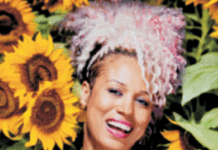It is interesting the way fashion and style changes with the times. When it comes to the way people express themselves in terms of clothing, footwear, lifestyle, accessories, makeup, hairstyle, and body posture, there is always one change or another. Every particular period or era and the fashion change that it comes with.
Interestingly, there is one thing that does not seem to change with regards to fashion and that is the fact that fashion always makes a comeback. There is always that never-ending cycle of change when it comes to the way people carry themselves about. At every point in time, there always seems to be one trend or another from the past that makes a comeback.
The political suit, especially the short-sleeved version with multiple pockets, used to be in vogue decades ago. There is a photograph on social media platforms of Ghana’s first president, Osagyefo Dr. Kwame Nkrumah, looking good in a green one. Then political suits they became a laughing stock. Now, there are back with a vengeance. Wigs were the “in thing” in my mom’s days. Then they became “colo”. Nowadays, wigs are a part of every in-lady’s wardrobe. Evidently, a reviving or recycling of fashion trends is just a part of life.
One aspect of fashion that has made a strong comeback over the past few years is the sporting of beards by men. I recall clearly that in the early 2000s when I entered the banking industry, the wearing of beards especially by those at the front line was not allowed. I recalled asking senior colleagues at the time why there was a problem with that and I was informed that it had to do with an old banking law.
It seemed the “no facial hair policy” started with a bearded banker who took a customer’s money. At a later time when the customer came back for the money, the banker had taken off his beard and denied ever taking the customer’s money. That has to be centuries ago. I believe times have changed so much that the chance of someone running away with a customer’s money because of a beard is totally out of the question. However, there are many still many financial institutions that still have a strict “no-beard” policy.
In general, I believe, times are changing with regards to facial hair for business professionals. These days, I see a lot of young bankers with well-trimmed beards working in the front line schedules of sales and customer service. I want to believe that when it comes to front line employees (FLEs) wearing beards, the key issue should be neatness. If the individual is able to keep a well-trimmed beard and moustache, then I really do not see anything wrong with it. From the many young bearded men I see these days, I am sure their bosses might be seeing things my way.
The truth is that the way an individual keeps his beard can be the difference between the one looking like a smart gentleman or an unscrupulous ruffian. But really, the question that comes to mind is this: Does facial hair really matter? Is not a matter of personal preference? Does physical facial hair particular have any effect on the experience of customers in dealing with front line employees? Is it ever possible that a customer’s experience would be made or marred by whether the FLE wears a beard or not?
Thankfully, a study published in the November 2020 edition of the Journal of Business Research sought to provide answers to the above questions. Titled “It grows on you: Perceptions of sales/service personnel with facial hair”, the study brought some very interesting thoughts to light. It was accepted that the presence of facial hair did not necessarily increase the attractiveness of a man. Perceptions of attractiveness of a man were independent of the presence of facial hair.
However, one thing that came to light was that facial hair accentuated the masculinity of the male. It goes without saying that facial hair was a clear enough indication of the masculinity of an individual. It is rare, although not impossible, to see a woman sporting a full beard. In short, the bearded gang was perceived as more masculine than the non-bearded gang. This is not too surprising.
What is however surprising is the claim by the researchers that “facial hair on male sales personnel drives increased perceptions of expertise.” The researchers further claimed that the more individuals were perceived as experts in their areas of endeavour, the higher the trust customers have for them and the greater the likelihood that customers would prefer to do business with them. The long and short of the whole study was that the “bearded gang” were better for the front line job than the “cleanly-shaved” gang.
The exact way the report put it was that “sporting a beard in a sales/service role may be beneficial to sales outcomes.” In other words, businesses might be better off flooding the front line with members of the bearded gang as opposed to those who had no beards. The researchers were convinced in their findings because the results were consistent across five separate studies involving a variety of ethnicities.
I can imagine the exasperation some bankers, especially those of the older stock, might feel just reading the preceding paragraph. But that is the thing about scientific studies. They often churn out findings that can be very difficult to accept. Which is also why there is always the opportunity for further studies—to either accept or to debunk the assertions of the previous study.
There is an explanation—or better still, an attempt at an explanation—for this beard-expertise claim. According to researchers people associate beards with maturity. There is also a general belief that the older or more matured an individual is, the more experienced the one is. And if the one is more experienced, then the one must be better at what they do than one who is less experienced. Therefore, beards equal experience.
I find this notion to be largely true. Individuals who have that “baby-face” look, those who by nature do not look their age, are often more likely to be doubted when it comes to their experience. When the job is such that experience is very important having a baby face can really be a disadvantage. Customers will hesitate with going ahead regarding a transaction when they have doubts about the experience of the one they are dealing with.
Whichever way you look at the issue of facial hair, the truth is that, looks matter. The way and style a person keeps their facial hair says a lot about the one. The keeping of facial hair or the absence of it is an important way means of non-verbal communication. Communication, in itself, plays a very important role in the service experience. The words and the accompanying tone the FLE employs at the front line are very important to the way the customer feels, especially on the telephone.
However, in a face-to-face encounter, the looks of the FLE also has a say in the way the customer is left feeling. The way a front line employee is styled tells a lot about the one and the organisation the one works for. A bushy, untrimmed and unkempt beard can put off a customer regardless of the words the FLE uses.
I am in no way advocating for all front line men to rush to go get beard enhancement creams. From the explanation above, the key mediating factor between the beard and perceptions of expertise is the perception of experience. Therefore, those without beards must ensure that customers have no doubts in their minds whatsoever about the experience of the non-bearded front liner.
The clean-shaved FLE must ensure that in his conversation with new customers, he occasionally drops hints of his experience. If there are certificates to prove one’s experience, it would not hurt if those certificates are prominently displayed where customers would see them. Every attempt must be made to put the customer’s mind at ease with regards to the experience of the FLE.
Also, it is important for all FLEs, bearded or otherwise, to know that in the end, all that matters will be the way the customer feels after the encounter. No customer comes into the experience just to admire a beard. Customers come into the encounter for an experience and the customer’s experience is the best evaluator of how well the FLE performed. The beard might have a say in making the FLE look more matured and more experienced but if the beard is not backed with the right action and the right attitude, the end result will be a dissatisfied customer.
The issue of whether male FLEs are to sport beards or to remain clean shaven is a matter for individual organisations, and perhaps the line of work or professions these people find themselves in, to look at. From what I have been seeing these days, it seems the bankers and other professionals in the finance industry might be relaxing their stance on the subject.
I really do not know about what the lawyers, doctors, etc. think of the matter. If an individual finds himself in a profession where there are no fixed policies concerning the keeping of facial hair, then the one can as well go ahead and do what the one deems appropriate. If the one feels like joining the bearded gang at the front line, so be it!
And oh, by the way, I do not belong to the bearded gang. Just so you know!










